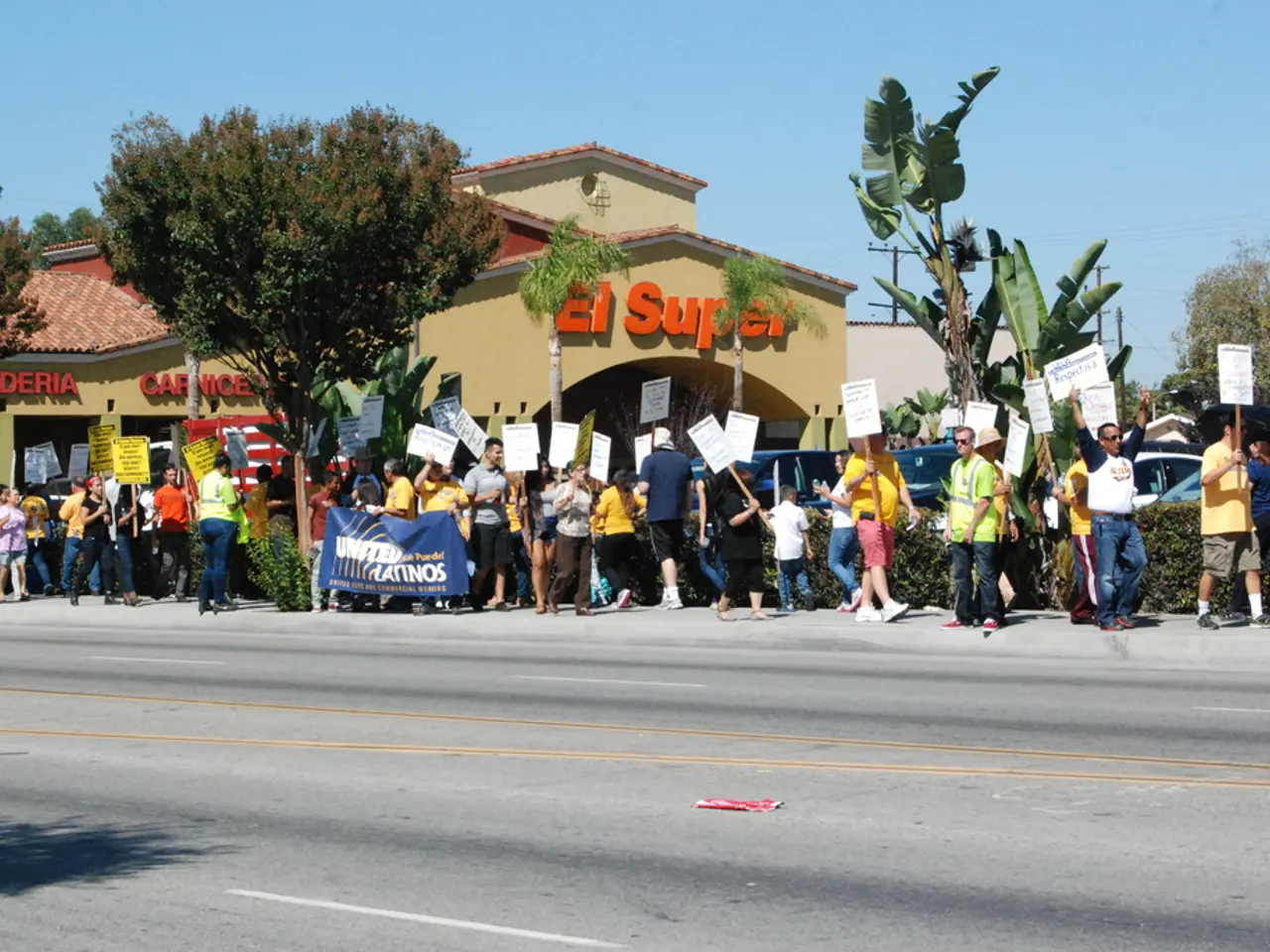Prioritizing the Voices of Underserved Populations: Ensuring Equity and Legal Protections
In the pursuit of social justice, coalition building plays a pivotal role in advocating for marginalized communities. These groups, often facing barriers to essential services, legal rights, and representation, find solace in the transformative power of collective action and public interest law.
Each inspiring case study demonstrates the impact of such collaborative efforts, contributing to social progress and legal recognition for marginalized communities. Effective advocacy involves grassroots organizing, strategic partnerships, and the strategic use of social media to mobilize support and raise awareness.
Public interest law serves a crucial function in this mission, with key activities including litigation, policy advocacy, and community education. Collaboration with nonprofits and organizations, such as the ACLU, NAACP, and Human Rights Campaign, is essential for amplifying marginalized voices and strengthening legal advocacy efforts.
Public interest law is aimed at promoting social justice and addressing the needs of marginalized communities by ensuring equitable legal representation and advocating for rights often overlooked by mainstream legal frameworks. Legal aid and support services, like the Legal Aid Society and community organizations, provide essential resources for marginalized individuals, ensuring they have access to justice and navigate the complexities of the law.
However, challenges persist in advocacy for marginalized communities. The lack of resources, pervasive stigma and discrimination, and navigating complex legal systems present formidable obstacles. Landmark legal cases, such as Brown v. Board of Education and Obergefell v. Hodges, serve as touchstones for ongoing advocacy, galvanizing efforts toward legislative change and reinforcing the necessity of community engagement.
Effective strategies for advocacy in public interest law for marginalized communities involve a well-planned, evidence-based approach that centres on understanding the political landscape, clear goal-setting, strategic communication, and building credible partnerships.
Key strategies include mapping the political landscape and entry points, clear preparation and understanding, strategic messenger selection, developing a clear, concise message and action plan, implementation with professionalism and persistence, risk management and sustainability, and empowering community participation and representation.
Grassroots organizing empowers individuals within marginalized communities to engage in advocacy and fosters a sense of ownership among community members. By adhering to these strategies, we can create a robust framework for public interest law advocacy that not only addresses legal issues but also shifts policy and structural barriers in favour of marginalized groups.
References:
1. 2. 3. 4.
Education and self-development are integral components in strengthening the advocacy efforts for marginalized communities. Empowering individuals through educational programs and personal growth can equip them with the knowledge and skills necessary to become effective advocates, contributing to a more robust framework for public interest law advocacy.
Moreover, ongoing training and skills development for legal professionals and grassroots organizers can help address the challenges faced in advocacy, ensuring a more effective and sustainable approach in promoting social justice and addressing the needs of marginalized communities.




